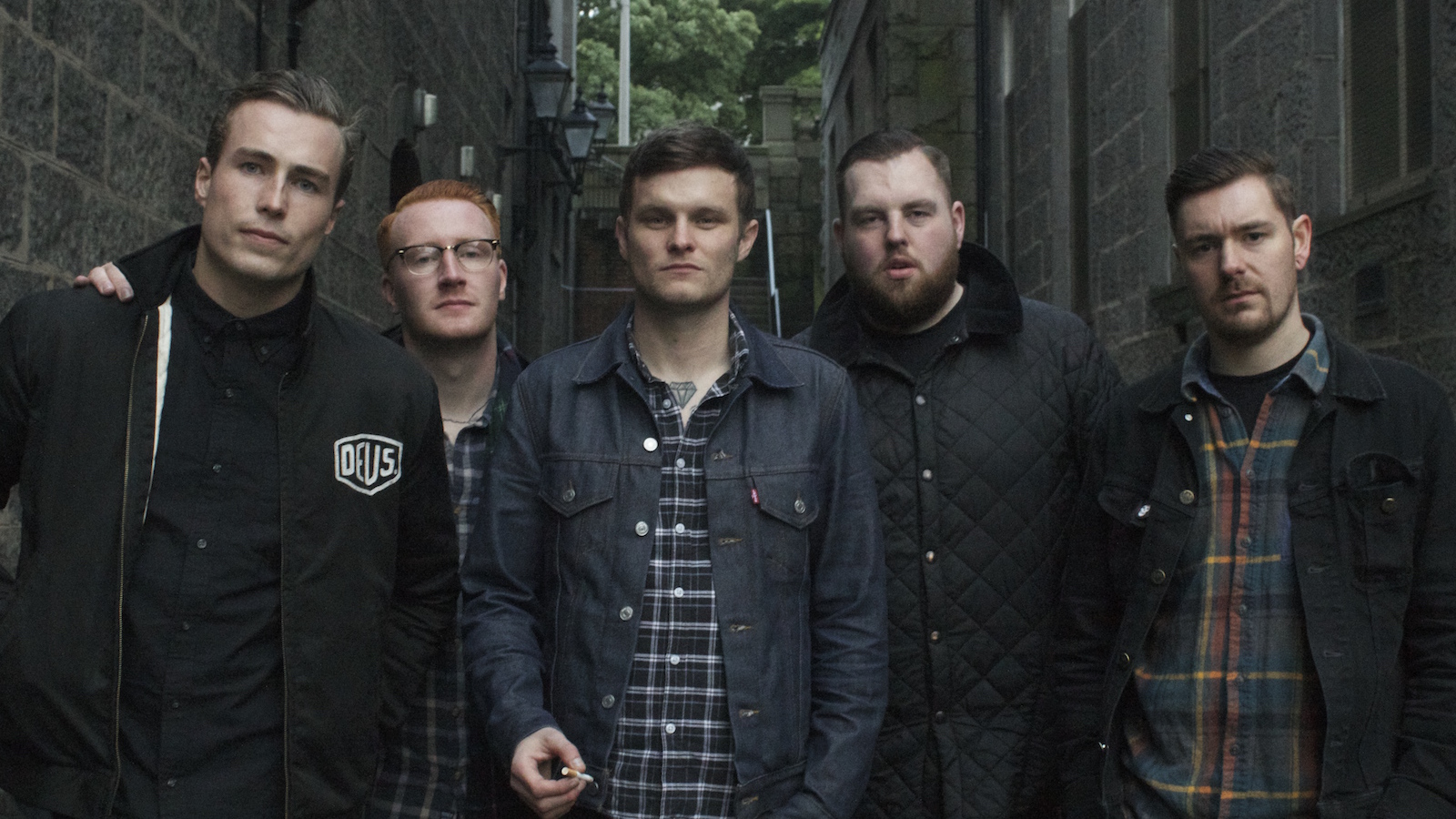A lot of Scottish bands create music informed by their country. Whether it’s Biffy Clyro, or The Twilight Sad, Idlewild or Twin Atlantic, it seems there’s often an undeniable regional influence within their songs that marks them out as coming from north of the border of this increasingly un-United Kingdom. It exists within Aberdeen five-piece Cold Years too, but listen to debut EP Mile Marker and its just-released follow-up Deathchasers, and it’s clear that their roots lie slightly further away, on the other side of the Atlantic.
“Quite a lot of Scottish bands have this Scottish sound,” says vocalist/guitarist Ross Gordon, “and it’s really organic. You can instantly tell on the radio if the band playing are Scottish. But we broke away from that kind of thing a little bit – we’re more into the [New] Jersey punk and blues sort of sound, so we were always going to sound a little different.”
Much of that is down to how the band, and Gordon especially, grew up. When the singer was very young, he was introduced to blues, and it’s something that has stayed with him ever since.
- Whose version of Little Red Rooster is better: Howlin' Wolf's or the Stones'?
- Twin Atlantic: "Being in a band is a massive laugh."
- The 10 best Biffy Clyro songs picked by their tour manager Neil
- Video: Chuck Ragan & The Camaraderie
“Around the age of five or six,” he remembers, “my dad got me a Howlin’ Wolf record, and so a big part of my upbringing and my influences are blues and old rock’n’roll. This generation has this thing where everybody wants instant accessibility, but I really like the idea of listening back to older records, because those are the roots of everything we do now.”
While Mile Marker found the band – completed by guitarists Finlay Urquhart and Jonny Cox, bassist Blain Manson and drummer Fraser Allan – riffing directly on those influences and the bands, such as Gaslight Anthem, Lucero and Hot Water Music’s Chuck Ragan, that followed those same paths, Deathchasers, which took 18 months to make,sees them honing in on their own sound. Partly, it’s because they had the time to do so after Allan broke his back.
“I know it sounds terrible,” but it kind of benefitted us. Within three months of him having that accident we toured again and came back a stronger band. It made us re-evaluate our situation with regards to recording and stuff and let us work on our songs a little longer, which meant we got them closer to what we wanted them to be.”
Now, barring any more debilitating personal injuries, the band seem ready to take on the world. For them, though, it seems like that has more modest implications that the grandiose dreams of fame and fortune that seem to spur so many along these days. That’s something, like their music, which presumably comes from that knowledge of and love for the blues, and understanding that music should have a purpose, that it shouldn’t just be a vehicle for becoming rich and famous. Not that Cold Years would say no to that, of course, but that’s never been their only ambition.
“As a kid, you want to be rockstar,” says Gordon. “You want to play stadiums and you want to do huge things. For me, that’s always been the case, but more importantly you need to be real about it and you need to understand that it doesn’t happen to everybody and you need to take each day as it comes. We’re really enjoying the way things are now and how they’re progressing. For bands our level, we need to keep making music and touring on it and recording something new quickly after. I’m not a fan of bands who sit on things for too long. I like bands who work hard and put out as much material as possible. So long as it’s good!”
Cold Years’ Death Chasers is available to stream on Spotify and to purchase on iTunes.
